Recent Blog Posts
Navigating Credit Card Debt in Texas: State Laws and Protections to Be Aware of in Texas
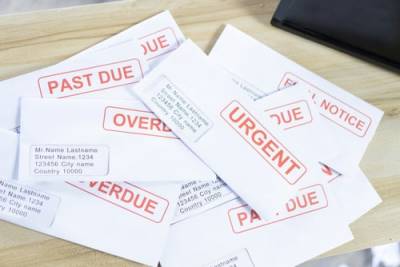 Managing credit card debt can be a challenging endeavor for many individuals. It is crucial to be aware of the specific laws and protections in your state to effectively navigate this financial burden. This blog post will cover the significant Texas statutes and defenses that you should keep in mind when dealing with credit card debt.. The laws on credit card debt can change with time, though, so be sure to connect with a lawyer.
Managing credit card debt can be a challenging endeavor for many individuals. It is crucial to be aware of the specific laws and protections in your state to effectively navigate this financial burden. This blog post will cover the significant Texas statutes and defenses that you should keep in mind when dealing with credit card debt.. The laws on credit card debt can change with time, though, so be sure to connect with a lawyer.
Statute of Limitations on Credit Card Debt in Texas
In Texas, there is a statute of limitations for credit card debt which means creditors have four years from the date of the last payment or acknowledgment of the debt to file a lawsuit and collect the debt. After this time, they cannot sue to collect the debt. It’s important to be aware that making a payment or acknowledgment could restart the statute of limitations, so it’s best to seek legal advice before taking any action.
Legal Rights and Protections After Bankruptcy in Texas
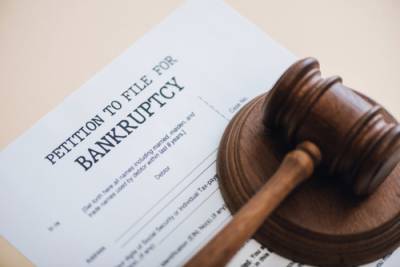 Filing for bankruptcy can be a complex and overwhelming process, but it can also provide relief and protection for those struggling with debt. If you’ve recently filed for bankruptcy in Texas, it is essential to understand your legal rights and protections to ensure you’re taking advantage of all the benefits available. This blog post will explore the key legal rights and protections available to Texans after bankruptcy, including the automatic stay, discharge of debts, exemptions, reaffirmation agreements, and credit reporting.
Filing for bankruptcy can be a complex and overwhelming process, but it can also provide relief and protection for those struggling with debt. If you’ve recently filed for bankruptcy in Texas, it is essential to understand your legal rights and protections to ensure you’re taking advantage of all the benefits available. This blog post will explore the key legal rights and protections available to Texans after bankruptcy, including the automatic stay, discharge of debts, exemptions, reaffirmation agreements, and credit reporting.
The Automatic Stay
After filing for bankruptcy, Texans can benefit from an essential legal protection called the automatic stay. It is a court order that prevents most creditor actions against you. This includes collection activities such as calls, letters, and lawsuits, which creditors must stop immediately.
The automatic stay is helpful to debtors harassed or threatened by creditors. It can also stop creditors from taking actions like wage garnishment, home foreclosure, or car repossession while in bankruptcy. However, it is important to remember that the automatic stay is not permanent and can be lifted if a creditor asks the court to lift it.
Types of Student Loan Debt Relief Options Available in Texas and What to Do If You Were Denied
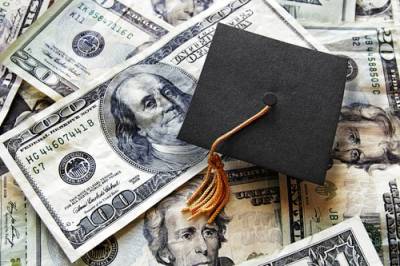 Student loan debt can be overwhelming and stressful, especially for those struggling to make monthly payments. Not to mention, when you are confident you qualify for student loan debt relief but cannot figure out why you got denied.
Student loan debt can be overwhelming and stressful, especially for those struggling to make monthly payments. Not to mention, when you are confident you qualify for student loan debt relief but cannot figure out why you got denied.
In Texas, several options are available to help individuals manage their student loan debts and get back on track. It is not uncommon to be wrongly denied when you apply for one of the topics. First, we will cover your options and then go over what you can do if you find yourself in this situation.
Income-driven repayment plans
Enrolling in an income-driven repayment plan is one of Texas’s most popular options for student loan debt relief. These plans link your monthly loan payment amount to your income and can offer much-needed help for those having difficulty making ends meet. Income-Based Repayment (IBR), Revised Pay As You Earn (REPAYE), and Pay As You Earn (PAYE) are some of the different types of income-driven repayment plans available.
Navigating Payday Loan Disputes in Texas
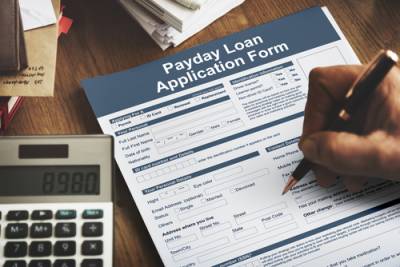 Payday loans are a prevalent form of short-term borrowing in Texas, often sought after due to their ease of access and quick approval process. However, disputes can arise, and understanding your rights and seeking legal help can be crucial in resolving such issues.
Payday loans are a prevalent form of short-term borrowing in Texas, often sought after due to their ease of access and quick approval process. However, disputes can arise, and understanding your rights and seeking legal help can be crucial in resolving such issues.
Texas Payday Loan Regulations
Key regulatory bodies and laws governing payday loans. In Texas, payday loans are regulated by the Texas Office of Consumer Credit Commissioner (OCCC) and the Texas Finance Code. The OCCC enforces state laws and ensures lenders comply with the regulations designed to protect borrowers.
Borrower's rights under Texas law
Under Texas law, payday lenders must hold a valid license and adhere to the following restrictions:
- The maximum loan amount is 20% of the borrower's gross monthly income.
- Payday loans cannot be rolled over more than three times.
Chapter 7 vs Chapter 13 Bankruptcy: What is the Difference?
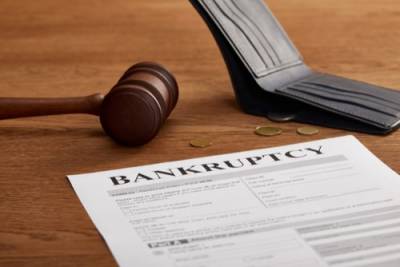 Bankruptcy is a legal process that gives individuals and businesses a fresh start by eliminating or restructuring their debts. If you are considering bankruptcy, you may have heard about Chapter 7 and Chapter 13 bankruptcy. While both types of bankruptcy provide debt relief, they significantly differ in how they work and who qualifies for each type. In this blog post, we will explore the differences between Chapter 7 and Chapter 13 bankruptcy to help you decide which one is right for you.
Bankruptcy is a legal process that gives individuals and businesses a fresh start by eliminating or restructuring their debts. If you are considering bankruptcy, you may have heard about Chapter 7 and Chapter 13 bankruptcy. While both types of bankruptcy provide debt relief, they significantly differ in how they work and who qualifies for each type. In this blog post, we will explore the differences between Chapter 7 and Chapter 13 bankruptcy to help you decide which one is right for you.
Chapter 7 Bankruptcy
Chapter 7 bankruptcy is also known as "liquidation" bankruptcy. It is designed for individuals with many unsecured debts, such as credit card debt or medical bills, and little or no assets. In Chapter 7 bankruptcy, a court-appointed trustee will sell any non-exempt assets you have to repay your creditors. However, many individuals who file for Chapter 7 bankruptcy do not have any assets that can be sold.
How Discharging Credit Card Debt in Bankruptcy Can Affect a Family’s Finances for the Better
 At the end of a successful bankruptcy case, a filer’s qualifying unsecured debt load is discharged by the court. After a specific debt balance has been discharged, the filer is no longer responsible for its repayment and creditors can no longer ask that it be repaid. Although not all unsecured debts are dischargeable in bankruptcy, two of the most common sources of financial anxiety for American families – credit card debt and outstanding medical bills – are dischargeable upon the conclusion of a successful bankruptcy case.
At the end of a successful bankruptcy case, a filer’s qualifying unsecured debt load is discharged by the court. After a specific debt balance has been discharged, the filer is no longer responsible for its repayment and creditors can no longer ask that it be repaid. Although not all unsecured debts are dischargeable in bankruptcy, two of the most common sources of financial anxiety for American families – credit card debt and outstanding medical bills – are dischargeable upon the conclusion of a successful bankruptcy case.
There are two primary reasons why eliminating credit card and medical debt via bankruptcy is often so beneficial for families. First, alleviating the pressure of paying these accounts every month can dramatically impact the stress level within a household for the better. Second, freeing up the funds that would ordinarily be used to pay these accounts means that they can be directed elsewhere.
Can Job Applicants Who Have Filed for Bankruptcy Obtain a Federal Security Clearance?
 Per the requirements of Executive Order 12968, an applicant for security clearance must consent to the review of their financial records and consumer reports. As a result, when an applicant submits a security clearance application, those who are investigating their fitness for this access will see if the applicant has recently filed for bankruptcy. This can be a tough reality to swallow for someone who is eager to leave the consequences of their debt relief needs behind them.
Per the requirements of Executive Order 12968, an applicant for security clearance must consent to the review of their financial records and consumer reports. As a result, when an applicant submits a security clearance application, those who are investigating their fitness for this access will see if the applicant has recently filed for bankruptcy. This can be a tough reality to swallow for someone who is eager to leave the consequences of their debt relief needs behind them.
There are so many benefits that bankruptcy filers experience when they take advantage of this personal debt relief opportunity. Yet, it is undeniable that filing for bankruptcy can lead to some challenges under certain circumstances too. For instance, while filing for bankruptcy is not likely to impact the outcome of an applicant’s security clearance investigation, it could if aggravating circumstances apply to an individual’s situation.
How Does Disposable Income Affect a Chapter 13 Bankruptcy?

If you are considering filing for bankruptcy, you have multiple options. Chapter 13 bankruptcy may be the preferred choice in situations where you want to avoid the loss of your assets or where you wish to avoid foreclosure and maintain ownership of your home. In a Chapter 13 bankruptcy, a repayment plan will be created, and you will make ongoing payments toward this plan for several years. If your income is below the median income in your state, your repayment plan will last for three years. If your income is above the median, you will be required to make payments for five years. The amount you will be required to pay will be based on your disposable income. However, the process of calculating your disposable income can be complicated, and you will need to understand the factors that may affect the amount you will pay and your ongoing financial concerns.
How Are Unsecured Debts Handled in Chapter 7 Bankruptcy Cases?
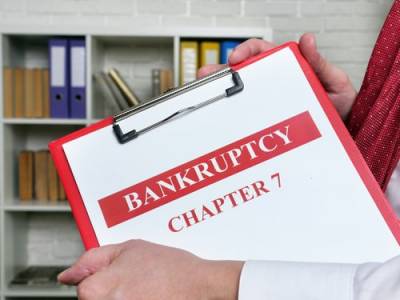
If you are considering bankruptcy, you may have multiple different types of debts, and it is important to know how these debts will be handled during your case. Specifically, if you are planning to file for Chapter 7 bankruptcy, you will want to understand how your unsecured debts will be addressed. This can ensure that you will be able to eliminate your debts successfully and achieve a fresh financial start.
What Are Unsecured Debts?
A debt is considered to be unsecured if it is not backed by collateral. That is, rather than having the assurance that they can take possession of property such as a car or home, a creditor will rely on the promise that the amount owed will be repaid. The most common types of unsecured debts include medical bills, credit cards, payday loans, utility bills, and personal loans. These debts do not have an asset attached to them that can be repossessed and sold off if the debt goes unpaid; instead, creditors may take legal action against you if you fail to make payments on your unsecured debt, and they may attempt to recover the amount owed through a judgment in court.
New Texas Law May Help Debtors Exempt Assets From Seizure by Creditors

New laws are passed regularly, and in many cases, they go into effect on the first day of the following year. However, keeping up with changes to the law can be difficult, especially for members of the general public who are not well-versed in legal issues. It can be important to be aware of these changes, because they can affect people's lives in many ways. One Texas law that took effect on January 1, 2023 may play a role in cases involving bankruptcy or other debt-related issues. This law gives debtors more options for preventing creditors from seizing their assets following a legal judgment.









